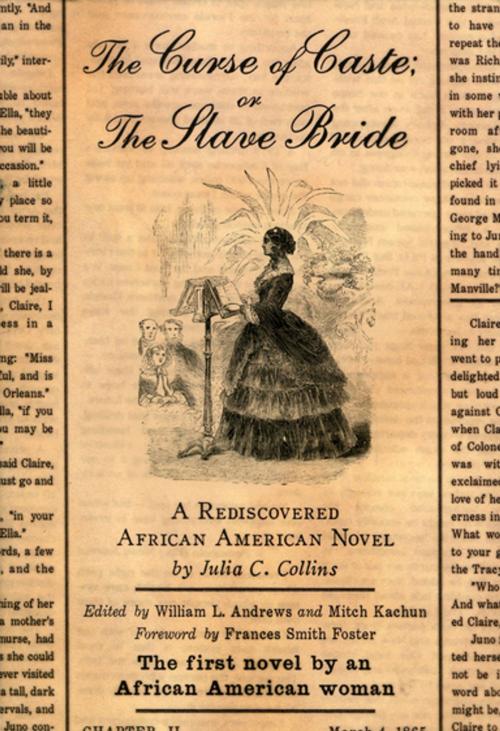The Curse of Caste; or The Slave Bride
A Rediscovered African American Novel by Julia C. Collins
Fiction & Literature, Literary Theory & Criticism, Black, American, Historical| Author: | Julia C. Collins | ISBN: | 9780190293864 |
| Publisher: | Oxford University Press | Publication: | October 16, 2006 |
| Imprint: | Oxford University Press | Language: | English |
| Author: | Julia C. Collins |
| ISBN: | 9780190293864 |
| Publisher: | Oxford University Press |
| Publication: | October 16, 2006 |
| Imprint: | Oxford University Press |
| Language: | English |
In 1865, The Christian Recorder, the national newspaper of the African Methodist Episcopal Church, serialized The Curse of Caste; or The Slave Bride, a novel written by Mrs. Julia C. Collins, an African American woman living in the small town of Williamsport, Pennsylvania. The first novel ever published by a black American woman, it is set in antebellum Louisiana and Connecticut, and focuses on the lives of a beautiful mixed-race mother and daughter whose opportunities for fulfillment through love and marriage are threatened by slavery and caste prejudice. The text shares much with popular nineteenth-century women's fiction, while its dominant themes of interracial romance, hidden African ancestry, and ambiguous racial identity have parallels in the writings of both black and white authors from the period. Begun in the waning months of the Civil War, the novel was near its conclusion when Julia Collins died of tuberculosis in November of 1865. In this first-ever book publication of The Curse of Caste; or The Slave Bride, the editors have composed a hopeful and a tragic ending, reflecting two alternatives Collins almost certainly would have considered for the closing of her unprecedented novel. In their introduction, the editors offer the most complete and current research on the life and community of an author who left few traces in the historical record, and provide extensive discussion of her novel's literary and historical significance. Collins's published essays, which provide intriguing glimpses into the mind of this gifted but overlooked writer, are included in what will prove to be the definitive edition of a major new discovery in African American literature. Its publication contributes immensely to our understanding of black American literature, religion, women's history, community life, and race relations during the era of United States emancipation.
In 1865, The Christian Recorder, the national newspaper of the African Methodist Episcopal Church, serialized The Curse of Caste; or The Slave Bride, a novel written by Mrs. Julia C. Collins, an African American woman living in the small town of Williamsport, Pennsylvania. The first novel ever published by a black American woman, it is set in antebellum Louisiana and Connecticut, and focuses on the lives of a beautiful mixed-race mother and daughter whose opportunities for fulfillment through love and marriage are threatened by slavery and caste prejudice. The text shares much with popular nineteenth-century women's fiction, while its dominant themes of interracial romance, hidden African ancestry, and ambiguous racial identity have parallels in the writings of both black and white authors from the period. Begun in the waning months of the Civil War, the novel was near its conclusion when Julia Collins died of tuberculosis in November of 1865. In this first-ever book publication of The Curse of Caste; or The Slave Bride, the editors have composed a hopeful and a tragic ending, reflecting two alternatives Collins almost certainly would have considered for the closing of her unprecedented novel. In their introduction, the editors offer the most complete and current research on the life and community of an author who left few traces in the historical record, and provide extensive discussion of her novel's literary and historical significance. Collins's published essays, which provide intriguing glimpses into the mind of this gifted but overlooked writer, are included in what will prove to be the definitive edition of a major new discovery in African American literature. Its publication contributes immensely to our understanding of black American literature, religion, women's history, community life, and race relations during the era of United States emancipation.















